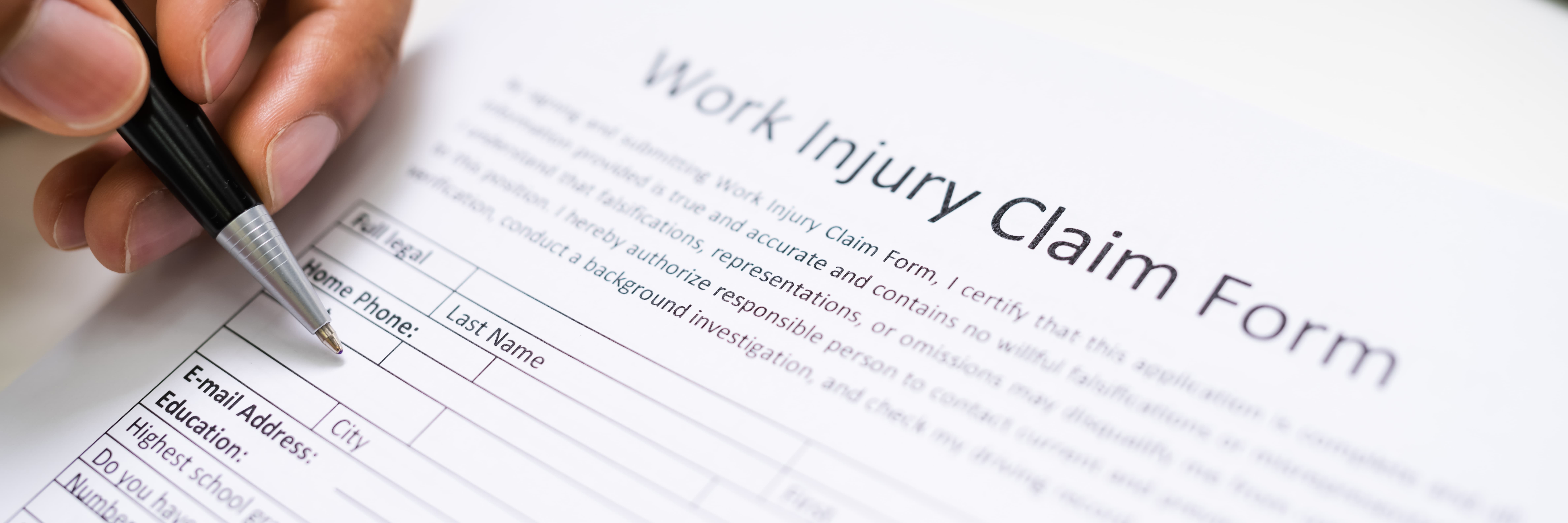What Are the Types Of Damages in a Personal Injury Case?
In a personal injury case, you request monetary compensation for your losses and receive a payment that reflects actual damages. Damages in a personal injury case are the sum of money paid for your economic and non-economic losses (such as the cost of your injuries after a car accident). The process is intended to compensate the victim for the harm that has occurred.
But what is considered damage in a personal injury case? After an accident, there may be various losses (classified as general damages or special damages) including physical injuries and pain, financial losses, or mental health injuries.
Damages addressed in a personal injury case compensate the victim for all of these types of losses. Our attorneys for personal injury claims explain.

What Is a Personal Injury Claim?
A personal injury claim is a legal process for a victim to receive financial compensation when hurt due to someone else’s actions. It is a civil legal case where a party is legally and financially responsible for injuries to another.
Why File a Personal Injury Claim After an Accident?
People have different reasons to file a personal injury claim after an accident. Some of the reasons include:
- Covering medical bills
- Paying living expenses and replacing lost income
- A recognition of physical suffering and emotional distress associated with the injury
- Future financial planning for needs related to injuries and physical limitations
- Holding wrongdoers accountable for causing the injury
- Encouraging safety and changes in procedures that may prevent future injuries
- Having their story heard and acknowledgment of what they have been through
- Seeking justice and pursuing their rights under the law
What Are the Types of Damages in a Personal Injury Case?
Compensatory damages pay you for your actual losses. Just like the name says, they compensate the injured party for the losses they have sustained. Losses may be economic or non-economic. The purpose of compensatory damages is to alleviate the losses suffered by the victim.
Damages in a personal injury case have three main categories:
1. Economic Damages
Includes out-of-pocket monetary damages such as:
- Medical bills – hospital expenses, nursing, and long-term care, physical therapy, mental health treatment costs, future medical care
- Lost income – lost wages, disrupted earning potential
- Property damage
- Funeral costs
2. Non-Economic Damages
Includes intangible losses that are non-monetary such as:
- Physical pain and suffering
- Emotional distress and anguish
- Mental health injuries – anxiety, PTSD/flashbacks, depression, embarrassment
- Loss of lifestyle and opportunity
- Scars and permanent disfigurement
3. Exemplary/Punitive Damages
These damages punish the defendant for outrageous conduct and deter reoccurrence.
(Sources: Goodson v. American Standard Ins. Co, 89 P.3d 409 (Colo. 2004)1, Bodah v. Montgomery Ward & Co., Inc., 724 P.2d 102, 104 (Colo. App. 1986)2)
What Are Economic Damages?
Economic damages are compensatory monetary damages. They are direct expenses and bills that result from an accident, like medical bills, or costs not covered by the insurance company. This includes loss of wages when the injured person can no longer earn income because of their injuries.
Economic damages are verifiable monetary losses. Some losses may occur in the future, like projected future medical expenses and disrupted career paths. Even so, in all cases, economic damages represent tangible, actual monetary losses due to a personal injury that occurred.
What Are Non-Economic Damages?
As any personal injury victim knows, an injury impacts a victim in many ways. The impact of a personal injury claim goes far beyond monetary losses alone. It would be unfair to pay a victim only for financial losses when a personal injury impacts them:
- Physically
- Mentally
- Emotionally
Non-economic damages are losses that are not directly financial. They are actual losses and suffering that a victim endures because of a personal injury. However, they are not monetary losses that can be totaled with a calculator.
Examples of non-economic damages are pain and suffering, emotional anguish, and the impact of the injury on a person’s lifestyle. These damages compensate the victim fairly for the severity of the injury and its effect on their life. The amount awarded for non-economic damages reflects the victim’s losses in these categories.
What Are Punitive Damages?
Punitive damages are extra compensation paid to a victim to punish the defendant for deplorable conduct. The damages do not reflect the victim’s losses. Instead, they punish the defendant for their behavior and deter others from acting in the same way.
RELATED: How Much Should You Ask for in Punitive Damages?
What Are Nominal Damages?
When a breach of contract occurs, a court may choose to award nominal damages when no actual harm can be calculated. Rather than compensatory damages for the claim, nominal damages are awarded to show that the plaintiff’s rights were violated but there were no substantial losses.
How Are Damages in a Personal Injury Claim Calculated?
Damages in a personal injury claim are the combined total of economic and non-economic damages. Economic losses can be totaled with evidence and accounting. Non-economic damages are based on demonstratable losses based on the severity of physical injuries. Colorado law creates guidelines for calculating punitive damages, if appropriate.
How Are Personal Injury Claim Settlements Paid Out?
Personal injury settlements may be paid out in several ways, including:
- In a lump sum – With a lump-sum payment, the plaintiff receives one check for the total amount.
- Spread out over time – If damages get collected over time, the defendant pays predetermined amounts at specified times.
- Managed by a trust – You can structure a settlement to ensure that funds are available in the future. A trust may be used in cases involving minors or incapacitated adults to manage funds.
Part of negotiating a personal injury lawsuit is determining how the settlement will be paid. Our personal injury attorneys can help you pursue the method of payment and claim compensation according to the statute of limitations for your type of case.
Attorneys for Personal Injury Damages
Understanding damages and pursuing them correctly is critical to receiving the financial compensation you deserve. Our attorneys can help by carefully evaluating damages to ensure that you claim each category that applies to your case. We gather the necessary proof to make your claim a success.
Contact us for a free consultation and learn more about damages and your personal injury claim.
Sources:
1Goodson v. American Standard Ins. Co, 89 P.3d 409 (Colo. 2004)
2Bodah v. Montgomery Ward & Co., Inc., 724 P.2d 102, 104 (Colo. App. 1986)









